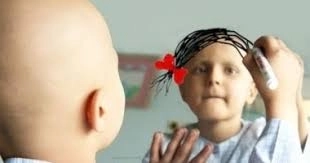
Can Cancer Be Cured? A Scientific Answer by Prof. Dr. Alaa Kandil
Published on: 2025-07-01 | Written by: Professor Dr. Alaa Kandil, Professor of Oncology
Prof. Dr. Alaa Kandil, Professor of Oncology, emphasizes that the word "cancer" no longer implies a death sentence as it once did. With scientific advancements and a wide range of treatment options, cure is possible for many cancer types—especially when detected early and treated with precision.
In this article, Prof. Dr. Alaa Kandil provides a scientific explanation of what “cure” means in oncology, what factors influence cure rates, and whether we can talk today about complete recovery from cancer.
What Does "Cure" Mean in Oncology?
Medically, a cure is defined as:
The absence of any detectable cancer in the body for a long period (typically 5 years or more) after treatment, without the need for ongoing intensive therapy.
However, doctors often prefer using terms like “complete remission” or “long-term disease-free survival,” since some cancers may recur years later in rare cases.
Types of Cancer with High Cure Potential
Prof. Dr. Alaa Kandil explains that certain cancers have high cure rates, especially when diagnosed early and treated promptly, including:
-
Early-stage breast cancer
-
Certain types of leukemia (especially in children)
-
Testicular cancer
-
Lymphomas
-
Early-stage colorectal cancer
-
Surface-level skin cancers (such as melanoma if caught early)
Key Factors That Influence Cure Rates
According to Prof. Dr. Alaa Kandil, the chance of being cured from cancer depends on several factors:
-
Stage of cancer at diagnosis (Stage I has better outcomes than Stage IV)
-
Type and aggressiveness of the tumor
-
Overall health and immune function of the patient
-
Response to chemotherapy, immunotherapy, or radiation
-
Genetic predispositions or inherited mutations
How Have Modern Therapies Improved Cure Rates?
Prof. Dr. Alaa Kandil highlights that:
-
Targeted therapy can attack cancer cells specifically without damaging healthy ones
-
Immunotherapy empowers the immune system to recognize and destroy cancer cells
-
Advanced surgical techniques offer more precise and less invasive procedures
-
Artificial intelligence and molecular diagnostics help personalize treatment plans
Conclusion
Cancer cure is no longer just a hope—it is a scientific reality for many types of cancer. With medical innovation and early detection, survival rates are improving significantly. Prof. Dr. Alaa Kandil stresses that awareness, routine screening, and adherence to treatment are key to achieving the best outcomes.

